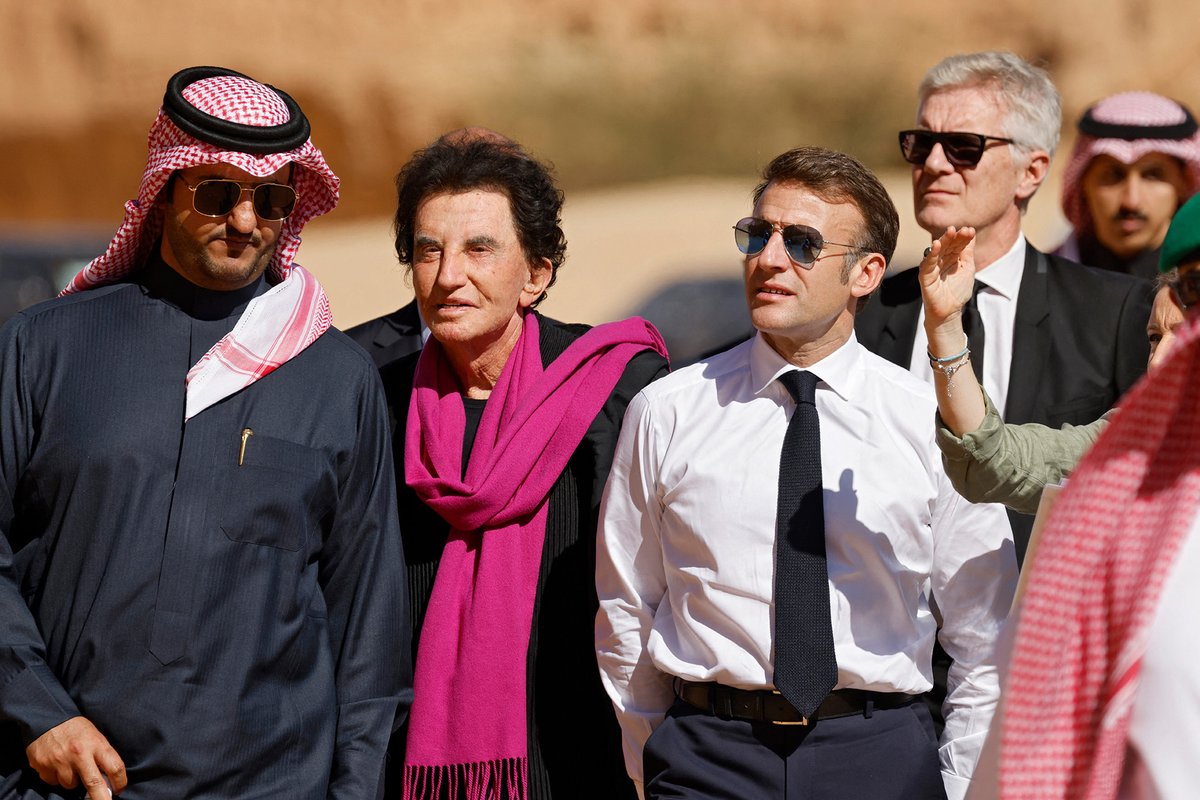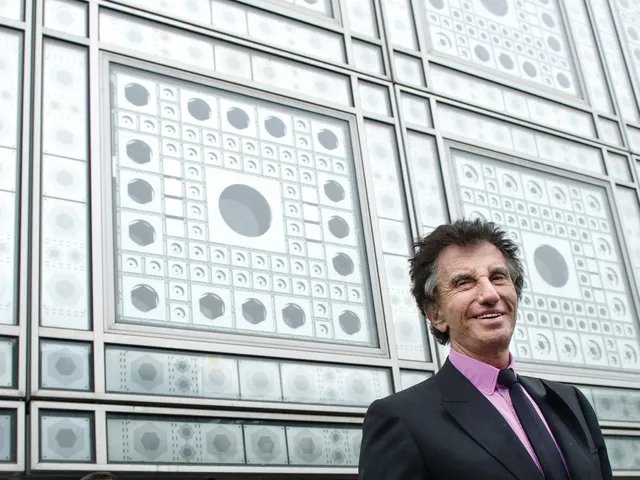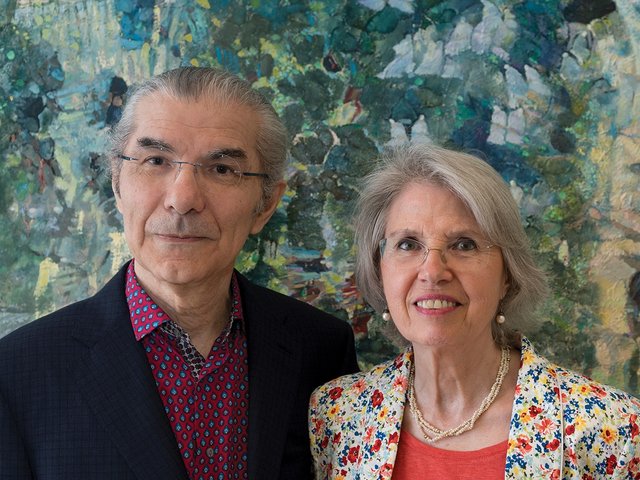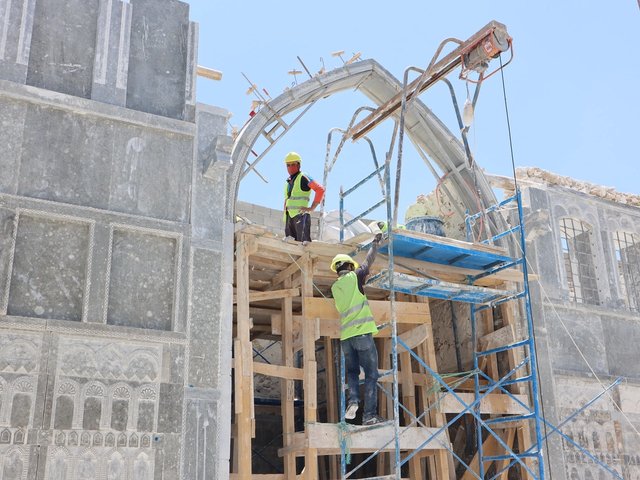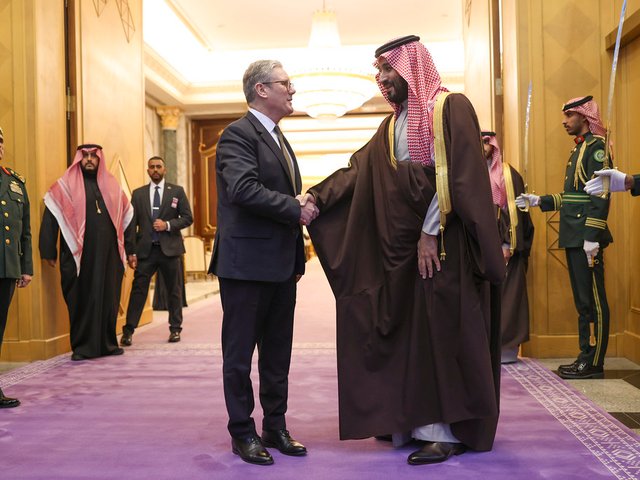In December 2024, both the French and UK governments undertook significant cultural investment negotiations with Saudi Arabia. The resulting accords were hailed on both sides of the Channel as presenting major, mutually beneficial opportunities.
Amid a total of ten deals, the French culture minister Rachida Dati confirmed the Royal Commission for AlUla’s contribution of €50m ($52.5m) to the forthcoming Centre Pompidou renovation. Further cultural expertise contracts were signed, including a partnership with the Grand Palais reportedly worth €23m over five years, cementing French support for new Saudi cultural institutions. The ministry of culture described these partnerships as “attesting to the level of international recognition that is afforded French cultural expertise and excellence.”
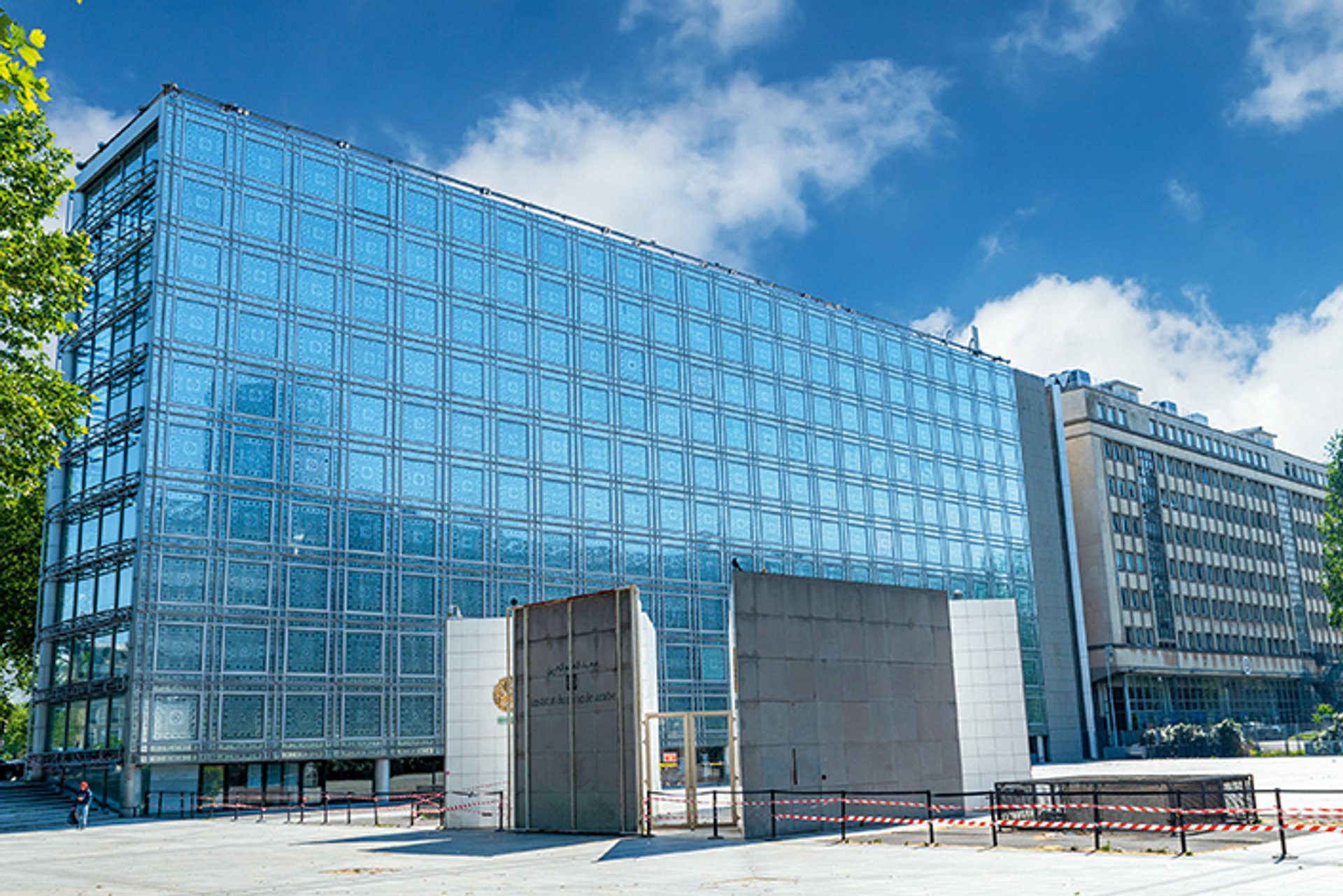
Funding from Arab states for the Institut du Monde Arabe has all but ceased © UlyssePixel
The UK prime minister, Keir Starmer, meanwhile confirmed a first partnership between Historic England and the Saudi Heritage Commission. A second will see the UK’s Department for Culture, Media and Sport and the Department for Business and Trade partner with the Royal Commission for AlUla over five years. Lisa Nandy, the UK culture secretary, has said these deals “highlight the global influence of the UK’s culture and tourism sectors”.
In sum, a veritable bonanza of soft power, with a notable shift towards investment on Saudi Arabian turf proper. This shift is highlighted by the one institution in particular—Paris’s Institut du Monde Arabe (IMA)—that has not benefited from these most recent negotiations.
In mid-December, Jack Lang, the former French culture minister who has presided over the IMA since 2013, reportedly wrote to the Saudi culture minister, Badr Bin Abdullah, reminding him that the institute curated “the first and only exhibition about AlUla”. When pressed on the matter, Lang insists that he has a “very good relationship” with the Saudi kingdom and has acted as consultant for the Royal Commission for AlUla, a megaproject about which he says he has been speaking “for ten years, since well before anyone else has”.
Co-founded in 1980 by the French government and 19 of the Arab League nations, the IMA describes itself as a “French cultural institution dedicated to the Arab world”. It hosts exhibitions, talks, concerts, film screenings and, since the collectors Claude and France Lemand’s donation of more than 1,300 works in 2018, one of the largest collections of Modern and contemporary Arab art in the West.
Lang’s continued attempts to renovate the building since acceding his post in 2013, have been, however, thwarted by ever diminishing funds. If the plan in 2023 was to completely overhaul and expand the fabled Jean Nouvel-designed Seine-side building, Lang now insists nothing will be demolished (“I don’t like destroying,” he says). Instead, the internal spaces are set to be reworked, by mid-2027, to better display the museum’s holdings, in particular.
The 1973 oil crisis was the event that precipitated the need for the IMA in the first place, as “a kind of bridge of friendship”, as Lang puts it, “between the Arab and Western civilisations”, but its status at present clearly shows how radically the diplomatic perspectives have shifted.
Funding at a standstill
In October 2024 the Cour des Comptes (France’s highest audit body) published its most recent report on the IMA’s finances. Lang asserts that the report is “extremely positive”. He says: “Rarely has a cultural institution benefited from as globally positive a review.” And yet, it clearly stresses ongoing financial difficulties and declining influence.
The institute is funded not by the French ministry of culture but by that of the Ministry of Europe and Foreign Affairs with, technically, contributions from its Arab nation members.
However, Lang says the Foreign Affairs grant the IMA receives, currently of “around €13m” has been at a standstill for 15 years. Further, the Cour des Comptes’s report highlights a lack of clarity among the ministry’s own ranks as to quite what role the IMA plays within its diplomatic and political apparatus. The other ministries (culture, education, interior), whose remit could encompass the IMA’s activities, the report notes, “prefer to keep it at arms’ length, lest they be asked to fund them”.
In addition, while ad hoc philanthropic donations continue, the Cour des Comptes’s report also notes that the Arab nations’ contributions to the IMA’s running costs, as agreed upon at the outset, have all but ceased. So too, their interest in filling the post of director general, Lang’s second-in-command. When Lang was re-elected to the presidency for a fourth mandate in 2023, he was the only candidate.
The international relations and Middle Eastern expert at the University of Warwick, Oz Hassan, explains that while the IMA was founded at a time when Euro-Arab relations were shaped by “mutual dependency”, its financial woes reflect a fundamental shift in the balance of power. “Arab nations no longer rely on Europe as a mediator of cultural diplomacy; instead, they are taking control of their narratives and asserting sovereignty over how their culture is presented globally.”
Decentralisation of soft power
This, Hassan says, marks a significant decentralisation of soft power: “Gulf nations are now heavily investing in their own cultural initiatives as part of broader strategies to project influence and redefine their global image. Saudi Arabia’s Vision 2030 [programme] is a clear example of this, with significant resources poured into domestic projects such as the Diriyah cultural district and in the UAE partnerships like the Louvre Abu Dhabi.” This offers incrementally bigger returns than supporting a Paris-based institution like the IMA.
Pointing to the popularity of its temporary exhibitions and oversubscribed Arab-language courses, Lang insists that the IMA remains “unique and untouchable”, with “a long life ahead of it, with or without me”. This pugnacity notwithstanding, the question of the institute’s ongoing relevance is unavoidable.
In December Hoor Al Qasimi, the daughter of the ruler of Sharjah, Sheikh Sultan bin Mohammad Al Qasimi, and the director of the emirate’s eponymous foundation and biennial, was placed at number one in the 23rd annual ArtReview Power 100 list last year.
This illustrates how, as Hassan says, soft power has changed: the Gulf states are now key drivers of global cultural and diplomatic initiatives. “The era when Paris could serve as a central platform for Arab-European relations is gradually being eclipsed by a new order in which regional powers shape their own futures.”


